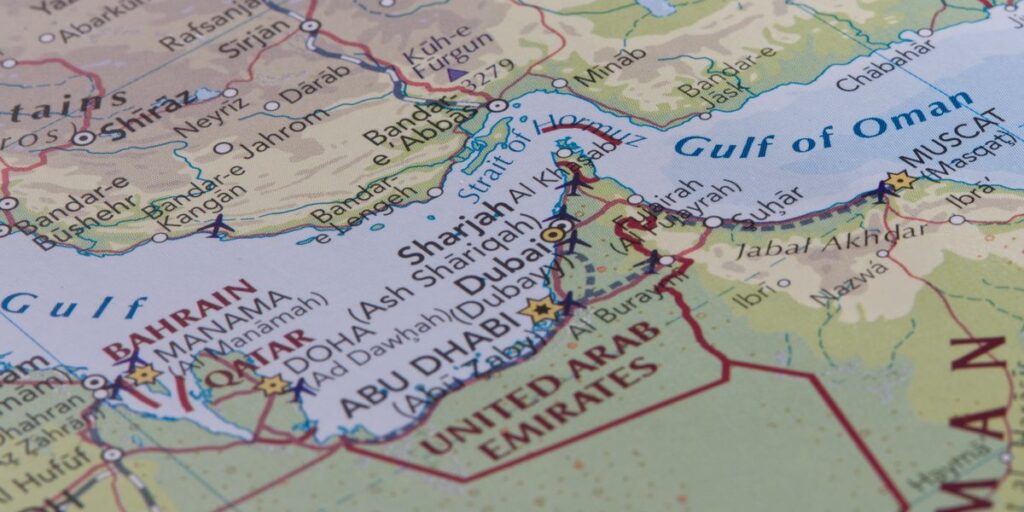In a seemingly minor diplomatic event in the Persian Gulf, the Kingdom of Bahrain agreed to begin negotiations with Iran to re-establish long-severed diplomatic ties between the two countries.
Bahrain is a small Gulf island nation with limited policy freedom and under the control of neighboring great power Saudi Arabia, but this incident has more significance than it might seem at first glance. First of all, Bahrain is the headquarters of the US 5th Fleet, which is responsible for the security of the Gulf, the Red Sea and the Arabian Sea. Any rapprochement between Bahrain and Iran would be a cause for concern for Washington, which may try to block it.
Bahrain is also a repressive Sunni-dominated regime that has severely oppressed its Shiite majority population, which has long resented the discriminatory policies, in part due to the staunch anti-Iran Saudi Arabia that dominates Bahrain’s foreign policy.
In fact, this situation is part of a broader pattern of US policy around the world, which has sought to identify enemies in different regions in order to establish and maintain favorable “security arrangements” in whatever region is in question. In the Persian Gulf, Iran has long been designated the “enemy,” and Washington’s Gulf policy, with strong Israeli support and encouragement, has focused on rallying regional military and political opposition against Iran.
Naturally, Iran has retaliated in kind by lending support to various regional groups and launching a nuclear project as a means to counter US power. While an important argument can be made that the US has not needed to keep its hostility towards Iran on autopilot for 45 years, such a policy has served Washington’s regional strategic and military hegemony well. (Readers of history will know that once the US identifies another country and places it on its “enemy list,” it is very difficult to get it off.)
Thus, a cornerstone of US Gulf policy for decades has been to establish a military presence in the region to “protect the free flow of oil.” It did not matter that nearly every anti-American dictator in the region was happy to sell their oil to the world, and that the “free flow of oil” hardly needed protection.
The first big hole in America’s military and strategic “wall” was drilled by the Chinese two years ago, who engineered a surprising rapprochement that had long seemed almost unthinkable to pseudo-experts because “everyone knows” that Sunnis and Shiites are sworn enemies. The Beijing-engineered diplomatic rapprochement between Saudi Arabia and Iran was the first striking sign that the geopolitical realities in the Gulf region were about to change dramatically.
Now, with the prospect of Bahrain mending its relations with Tehran, the changes that the Chinese (and Russian) presence in the Persian Gulf will bring are more clearly visible — changes that Bahrain would never have undertaken without the consent of Saudi Arabia, which preceded Bahrain in de-demonizing Iran.
In a way, this recalls the revolutionary shift in Turkey’s regional policy over the past 30 years under the brilliant leadership of academic and Foreign Minister Ahmet Davutoglu, who proclaimed a new “zero enemies” foreign policy in which Turkey will work to repair relations with all its neighbors, long hostile in NATO and other contexts.
In Washington, Davutoglu was despised because such a stance was seen as undermining the “enemy identification” policy that had been used to justify the NATO military alliance (indeed, today virtually no independent European foreign policy is recognized as existing outside the US-led NATO structure).
But Davutoglu’s “zero enemy” approach raises the question of whether “intractable” rivalries in the region might turn out to be manageable after all, especially if one assumes that states have the power to change negative or hostile attitudes.
Indeed, this calls into question the very foundations of US policy, which is based largely on “enemy identification” that requires ever-increasing military engagement and confrontation.
Meanwhile, recent events serve to some extent to strengthen Iran’s legitimacy as an important regional actor, coinciding with its new membership, together with Saudi Arabia, in the BRICS bloc – an organisation largely responsible for the rise of the new Global South.
Of course, we cannot expect a millennium of universal peace. It is impossible for everyone to live in perfect harmony with everyone else at all times and without conflict in international relations.
But it is certainly a worthy goal for states to assume that hostility need not be automatic or reflexive, and that states do indeed have agency and can make big decisions about whether to improve or worsen their relations with other states.
However, at least since the collapse of the Soviet Union, the United States, which currently has the most ideological foreign policy in the world (such as “the global war on terror” and “the realization of global democracy through regime change”), would do well to take some inspiration from this book, especially in its relations with Russia and China.
Diplomacy seems like a lost art in Washington today, specifically designed to defuse such tensions rather than exacerbate them, but exacerbating tensions seems to be the path Washington often takes to maintain an enemy vision that requires a U.S. military solution and U.S. hegemony.
From an article on your site
Related articles from around the web

